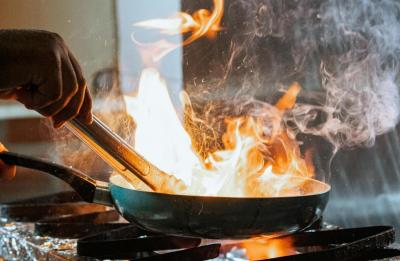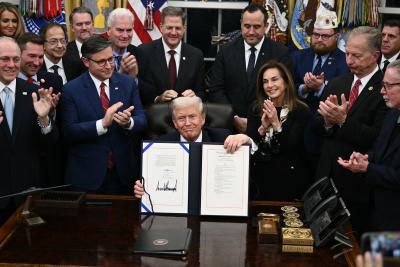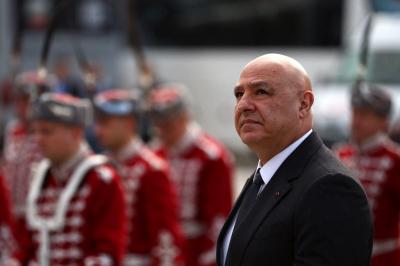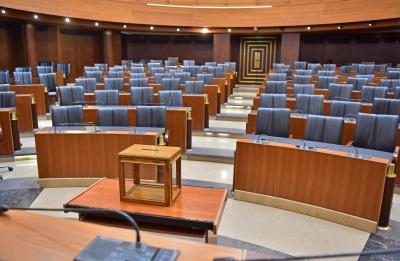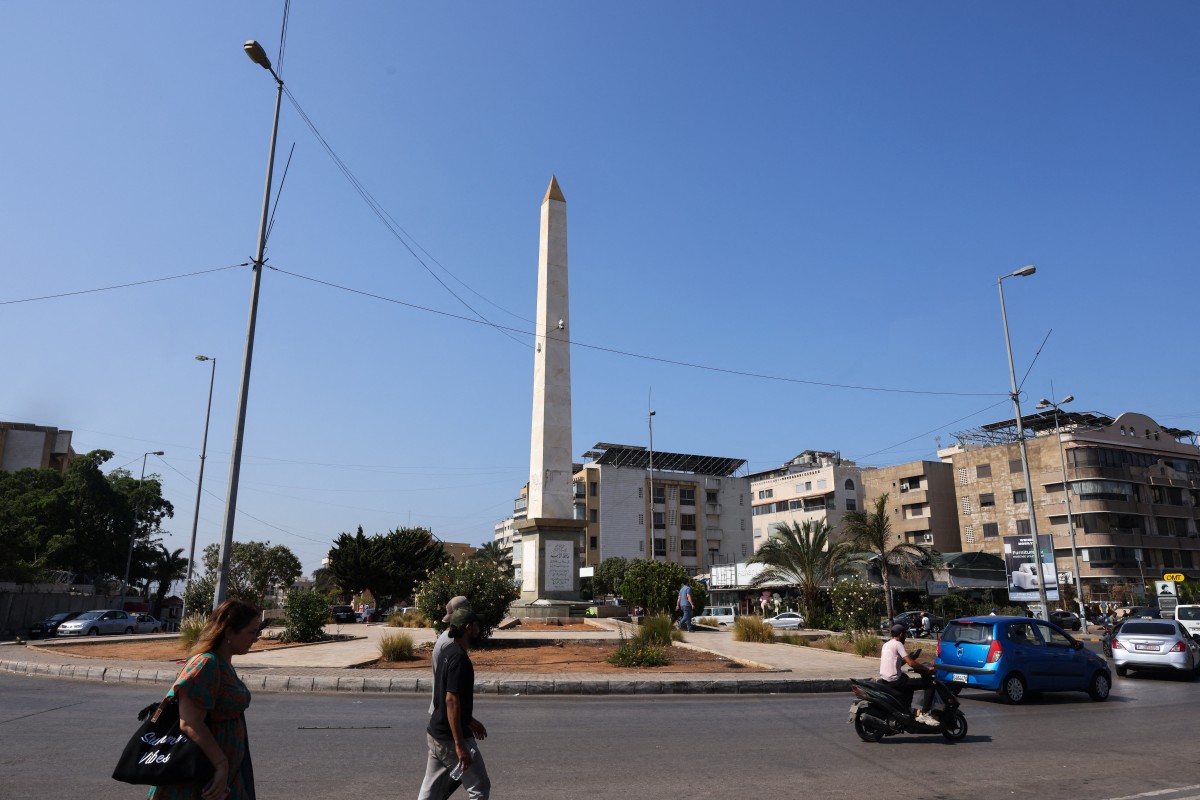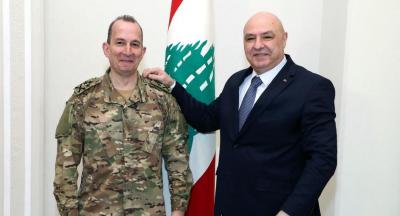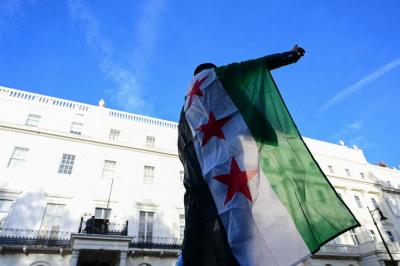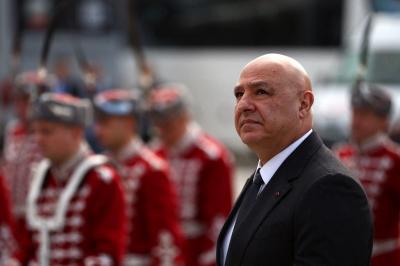At last, the long-awaited, irreversible divorce between the Lebanese state and "Hezbollah" has taken place—an end to a forced marriage that lasted decades and left behind a broken household, a splintered society, and a nation suspended between war and uncertainty.
This coerced union produced a string of illegitimate offspring, each more destabilizing than the last: “Weapons protect weapons,” “The blocking third,” “The army-people-resistance trinity,” “Unity of battlefronts and support wars,” “The defensive strategy,” and the youngest, “The weapons dialogue.”
All these flawed creations were put to rest with a single resolution adopted by the Lebanese Cabinet two days ago, followed today by reinforcement through a policy document submitted by U.S envoy Thomas Barrack. The state had no luxury of options; it followed one urgent, rescue-driven path, forged by a rare alignment of Lebanese, Arab, and international wills. It is no overstatement to say: what follows this decision will bear no resemblance to what came before. Like a court ruling “immediately enforceable in its original form,” the government’s move stands, regardless of "Hezbollah"’s angry rejection, labeling it a “grave sin” and pretending it “never happened.”
The earlier four “children” of this unnatural alliance had already perished, brought down by the formation of a government that dismantled the veto power of the “blocking third,” and by a war that shattered "Hezbollah"’s cherished slogans: “weapons protect weapons,” “the trinity,” and “unity of fronts.” Now, the state’s decision has sealed the fate of the last two: “the defensive strategy” and “weapons dialogue,” each stamped shut with red wax.
In recent weeks, "Hezbollah" clung to the phrase “defensive strategy” like a crutch, using it to justify its refusal to disarm. But the phrase was never more than a veil, an excuse to preserve the militia’s arsenal in the name of “resistance”, as if no shift had occurred in regional deterrence balances, no defeats suffered by the so-called “Axis of Resistance.”
Now, with a foundational and structural decision made by the Lebanese government, only the state’s legitimate institutions will have the authority to define a “national security strategy,” as stipulated in the President’s inaugural address and the Cabinet’s ministerial statement. "Hezbollah", like any other political party, has no special status in this process beyond its representation in Parliament or Cabinet.
As for the now-defunct “weapons dialogue,” which proved hollow over months of fruitless discussion, it has been discarded. It was never more than a stalling tactic—a smokescreen to absorb or delay President Joseph Aoun’s pledge to resolve the weapons question through dialogue. Now, with the new legal decision, the matter has moved into the realm of implementation: the Lebanese Army is tasked with formulating a disarmament plan by the end of August and executing it before the close of this year.
Faced with this turning point, "Hezbollah"’s reaction has been predictable. The party’s leaders, most vocally Secretary-General Sheikh Naim Qassem—along with aligned clerics (with Speaker of Parliament Nabih Berri notably silent), have escalated their rhetoric. Threats of street action, motorcycle convoys, veiled hints at a new “May 7,” black-shirted militants, and looming sectarian unrest have emerged. These theatrics, however, are nothing more than an attempt to mask the party’s growing weakness and disillusionment, last gasps in the face of a determined state.
Even the scattered attacks on the army, be they at the Tyre beach outpost, the Hermel barracks, or elsewhere, amount to emotional outbursts against the state’s decision, further alienating the public from the perpetrators.
The unwavering stance of the Presidency and Premiership, backed by a clear majority in Cabinet and reinforced by wide Lebanese political and popular support, not to mention endorsements from Saudi Arabia, the Gulf, France, the U.S., and a broad swath of the international community, has placed the state back on the path of rebuilding its sovereignty and reclaiming its exclusive right to wield arms and declare war or peace.
Even the symbolic removal of Hafez al-Assad “highway” and its renaming after Ziad Rahbani marks the beginning of a long-overdue purge of the toxic legacies that once eroded Lebanon’s national decision-making.
In light of this sweeping shift, "Hezbollah" would do well to reconsider its position if Tehran allows it the freedom to do so. The party must reckon with the isolation it has imposed on itself and the dangers of challenging the state’s decision to monopolize arms, pretending it never happened.
It should also note the unraveling of its alliances, despite its desperate efforts to regroup them under the banner of its arms and promises of electoral backing. Those former allies have now openly declared their support for arming only the Lebanese Army, a signal of their discomfort and the political storm gathering against "Hezbollah", from Baabda and the Grand Serail, possibly even Ain el-Tineh, to Riyadh, the Gulf capitals, Paris, Washington, and beyond.
But is its a solitary alliance with Iran, along with the trailing fringes of its proxies in Iraq and Yemen, enough to stand against this overwhelming tide rising against its weapons?
Can denial and self-destruction truly be mistaken for a divine promise of “gardens beneath which rivers flow”?
Perhaps, in moments of quiet reckoning, "Hezbollah" whispers to itself, echoing the ancient poet Al-Aʿshā:
“Like a goat that rams a rock, hoping to weaken it,
But the rock remains untouched—while the goat breaks its own horn.”
Please post your comments on:
[email protected]
 Politics
Politics

